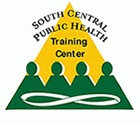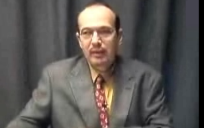
Health Risk Assessment and Taking an Exposure History
Course Description:
This course provides an overview of the principles of public health risk assessment and biological monitoring to assess exposure. The goal of this course is to increase the public health practitioner’s knowledge of hazardous substances in the environment and to aid in the evaluation of potentially exposed individuals and communities. The process of health risk assessment and taking an exposure history is demonstrated using case studies and taking a clinical history approach to look at how to develop, implement and interpret an exposure history such that is included in the clinical evaluation of the patient.
Target Audience
Academic Faculty/Staff, Federal Government Employees, State Government Employees, Local Government Employees, Non-Government Employees and Students
Learning Objectives
- Identify the four segments of the current health risk assessment model
- Name two sources of toxicity data
- Identify four different routes to evaluate when assessing exposure
- List one method of exposure assessment
- List three types of the most common biological fluids or tissues used for measuring chemicals or metabolite(s)
- Describe three reasons why population-based strategies for research are useful
- Identify two national databases which provide useful information on exposure assessment
- Name four main organ systems affected by toxic exposure
- Identify toxicants in the home and environment
- Describe the three sub-components of the exposure history form
- Explain the importance of the exposure survey
- Describe the significance of cultural history in the context of an exposure history
Instructor:

William R. Hartley, Sc.D., M.S.P.H.
Dr. William R. Hartley is an Associate Professor of Environmental Health Sciences at the Tulane University School of Public Health and Tropical Medicine. Dr. William (Bill) Hartley is an environmental toxicologist with extensive training and experience in health risk assessment. He has participated in numerous local, state, national, and international practice and research programs for the State of Louisiana and is extensively involved in outreach programs. He is co-director of the newly awarded Centers for Disease Control and Prevention (CDC) Prevention Research Center at the Tulane University School of Public Health and Tropical Medicine, which is the first of its kind to focus on environmental diseases. Dr. Hartley is the author or co-author of more than 50 scientific publications in books, journals and government publications. He has served on numerous peer review panels for federal and state agencies, including the U.S. Environmental Protection Agency, the ATSDR and the State of Louisiana Office of Public Health. Dr. Hartley's research has included health risk assessment and development of advisories and standards in the areas of environmental contaminants from the explosives industry; pollution of fish and shellfish; air pollution; drinking water programs; mercury programs; hydrocarbon mixtures from the petroleum industry and drinking water disinfection by-products. He developed toxicological methods to screen chemicals for reproductive toxicity and endocrine disruption in fish and has used wild fish as bio-markers of exposure in aquatic environments.
Available Credit
- 3.00 Participation/CETulane Professional and Continuing Education (PaCE) awards 3.00 hour(s) of credit for completing Health Risk Assessment and Taking an Exposure History
Price
Required Hardware/software
System Settings
This course is designed to work most effectively if your computer and internet connection meet certain minimal requirements. This course can be accessed using a Windows 10 PC or a Mac with High Sierra1, Mojave, or Catalina. Pop-up blockers should be disabled when viewing the course. Internet Explorer 11 (for Windows 10), or the current version of Google Chrome, Mozilla Firefox, or Apple Safari (for Windows 10 and or Mac) is required. Many of our courses require Java and JavaScript enabled.
Links to External Websites
Links to websites outside this course will open in a new window or tab. Some browsers may minimize the course window. If this occurs, maximize the course window to return to the course.
Adobe Acrobat Reader (for desktops and laptops)
Adobe Acrobat Reader is required to access some documents in this course. If you need to download a free copy of Acrobat Reader, click here.
Internet Connection Speed
A minimum download speed of 1.5 Mbps is recommended for an optimal experience, which is commonly the speed associated with a basic DSL or a cellular/satellite connection. A faster connection, such as cable or fiber service, with further enhance your online experience. A Wi-Fi connection is generally acceptable, but it is dependent upon one of the two services mentioned above. You can check your internet connection speed at http://www.speedtest.net/.

 Facebook
Facebook Twitter
Twitter LinkedIn
LinkedIn Forward
Forward